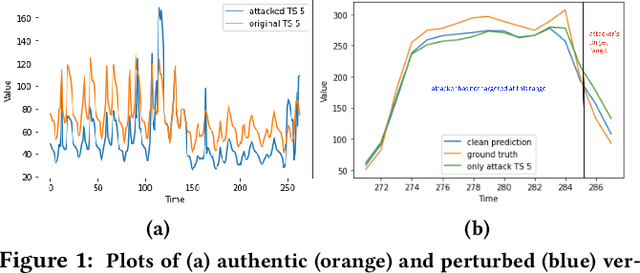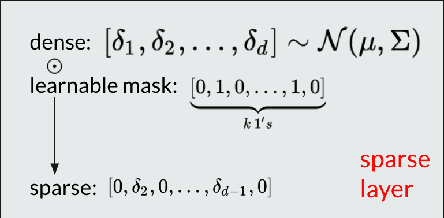Towards Robust Multivariate Time-Series Forecasting: Adversarial Attacks and Defense Mechanisms
Paper and Code
Jul 19, 2022



As deep learning models have gradually become the main workhorse of time series forecasting, the potential vulnerability under adversarial attacks to forecasting and decision system accordingly has emerged as a main issue in recent years. Albeit such behaviors and defense mechanisms started to be investigated for the univariate time series forecasting, there are still few studies regarding the multivariate forecasting which is often preferred due to its capacity to encode correlations between different time series. In this work, we study and design adversarial attack on multivariate probabilistic forecasting models, taking into consideration attack budget constraints and the correlation architecture between multiple time series. Specifically, we investigate a sparse indirect attack that hurts the prediction of an item (time series) by only attacking the history of a small number of other items to save attacking cost. In order to combat these attacks, we also develop two defense strategies. First, we adopt randomized smoothing to multivariate time series scenario and verify its effectiveness via empirical experiments. Second, we leverage a sparse attacker to enable end-to-end adversarial training that delivers robust probabilistic forecasters. Extensive experiments on real dataset confirm that our attack schemes are powerful and our defend algorithms are more effective compared with other baseline defense mechanisms.
 Add to Chrome
Add to Chrome Add to Firefox
Add to Firefox Add to Edge
Add to Edge